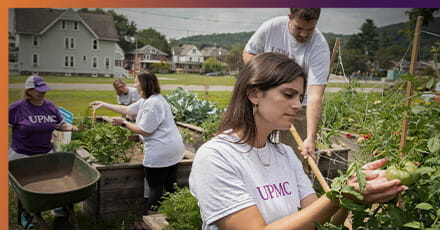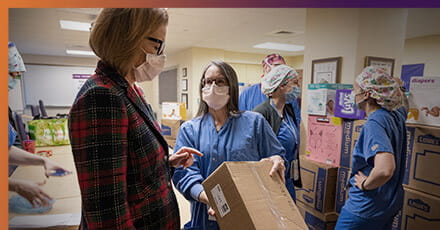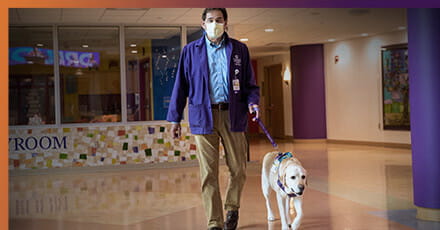Michelle Rockwell understands why some people get anxious when discussing technology. After all, learning how to operate a new device can be intimidating at first.
But hearing the passion and excitement in her voice when discussing the possibilities may help put almost anyone at ease.
“I always tell people, ‘Don't get nervous when we talk about tech,’” says Michelle, an assistive technology specialist at Voices for Independence/TRPIL Community Center.
“People hear ‘tech,’ and they get all apprehensive. But as our generations age, our baby boomers, that’s what is driving so much of the technology because they want to be independent.”
Assistive technology is any device that helps individuals with disabilities to live and work more effectively and independently.
TRPIL (Transitional Paths to Independent Living) provides assistance with assistive technology for people with disabilities. Their assistive technology services include public awareness and device demonstrations, training and technical assistance, funding assistance, and more. UPMC is a proud partner of TRPIL.
TRPIL's work includes everything from low-tech options like a can opener to assistance with smart home technology. More high-tech options include automatic door openers and voice activation for smart TVs and other compatible devices.
For people who are unable to operate a standard remote, Michelle says the possibilities of what TRPIL can program on a tablet are endless.
“UPMC has done so much for their participants on approving those,” she says. “And then we're lucky enough to be a provider in the state to go out and fulfill those, and make sure that the devices are going to work for the person, and provide training and ongoing follow-up with support for that.”
Michelle and TRPIL also have helped with adapted telephone equipment for people who may have difficulty hearing or seeing.
“Anything from a large-button phone to a talking phone,” she says. “A lot of individuals with low vision, (the phones) light up either red or yellow because as somebody progresses with macular degeneration, it's usually red and yellow that they're able to see on a contrast.”
TRPIL also partners with the Office of Vocational Rehabilitation (OVR). OVR provides services to help people with disabilities prepare for, obtain, and maintain employment.
“We work with a young man who is going to barber school on things like recording devices to help him with his notes,” Michelle says.
TRPIL also pairs individuals with low vision with assistive technology like color-coded keyboards, magnifiers, and bill readers.
“For anyone who has low vision or who is blind, you run the bill through it, and it will tell you what the denomination is,” Michelle says.
“UPMC has been approving a lot of C-Pens. They’re reader pens. If someone has low vision, they can’t always stay in a straight line. We give them these as a guide, and then they run the pen through it and the pen will read (the words aloud).”
Recently, TRPIL installed smart light bulbs to enable voice activation for a woman when she’s home alone.
Michelle has a background as a social worker. For her, getting someone the assistive technology they need is the start of something more life-changing.
“It’s a lot more than just dropping off a device to somebody and saying, ‘Here,’” she says. “You want them to be able to use it and have that independence. The technology is here, and it’s so exciting.”
At UPMC, Life Changing Medicine means providing individuals with the assistive technology they need to live independently.
Learn more about how TRPIL is helping people with disabilities in our communities.
See All That UPMC Does in the Community




















